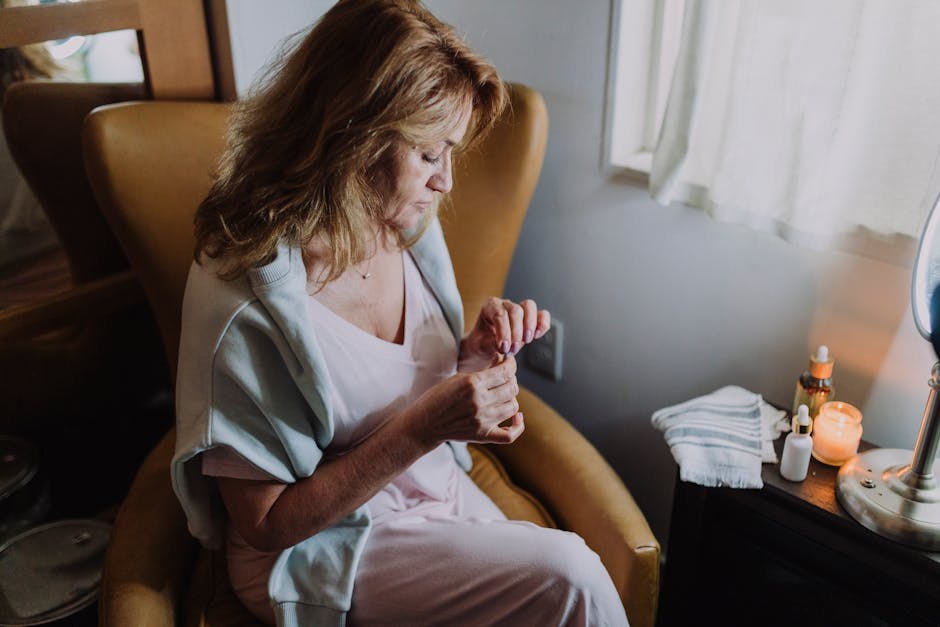There is a moment in every difficult love story when the room seems to shrink, the air thins, and words you rehearsed in your head finally land. Mine arrived with a quiet question that felt like a bell toll – “Can we talk?” It wasn’t a demand. It wasn’t even dramatic. But the weight of it pressed against my ribs as if my own body already knew that betrayal was stepping into the light. I had spent years telling myself that I could read him – the tilt of his smile, the way his shoulders softened when he was at ease – and yet, when I looked into the eyes I knew best, I could no longer read the page. Silence answered before his voice did, and in that silence, something in me unclenched and cracked all at once.
We met in college when life felt like a hallway of open doors. We were friends first – uncomplicated, silly, loyal. Friendship gave us a rhythm: inside jokes, late-night snacks, and study sessions that turned into meandering talks about what we might become. Romance simply followed the beat. Dating your best friend means small things fall into place without grand effort; his ridiculous puns landed, my odd little habits were endearing, and we wore our attachment like a well-loved sweater. We built a future the way students build plans – with sharp hopes and soft edges, convinced that the map would carry us because we drew it together.
Then came the season after the honeymoon, when adulthood asks for proof. Careers, rent, the pressure to be useful – all of it pressed in. We argued sometimes, we reconciled often, and we kept moving. I told myself that friction meant growth. I also told myself that the unsettling prickle at the back of my mind was just stress. I had always trusted my instinct, that quick internal flicker that whispers a warning. But I chose, more often than I want to admit, to muffle that voice. I explained away inconsistencies. I praised us for our endurance. I mistook busyness for intimacy and smooth schedules for safety, even as betrayal quietly learned the shape of our home.

When the truth finally stood in front of me, it was not loud. It was a simple confirmation, the kind you can’t unhear. He said what my heart had already begun to translate – that fidelity had been broken for a long time, that I had been sharing my life with more than I knew. The exact span of time felt like a stone dropped into water; I could feel the ripples moving outward, touching memory after memory. The floor of my certainty gave way. It was December-cold inside my chest. I did not faint or rage. I simply felt the world re-sort itself, as if every shared photograph and plan had to be re-labeled: Before. During. After.
In the wreckage of that night, I realized something bracing – pain is a brutal teacher, but it does not waste lessons. The realization did not arrive as tidy wisdom. It arrived as restless sleep, as long showers, as the ache of seeing my reflection and thinking I should have known. Yet slowly, a curriculum formed. From the shards of what we were, I learned how to name what happened, how to step out of denial, and how to treat myself like someone worth steady care after betrayal.
How a Love Built on Friendship Slipped Into Shadows
Looking back, I see how ordinary love can drift without anyone steering. We grew up beside each other, but there were months when we stopped looking each other in the eye. We exchanged logistics and weather reports instead of truth. When people speak about betrayal, they often picture a single flare of wrongdoing, something cinematic. Mine was uncinematic – a thread pulled quietly from the hem day after day until the garment unraveled. I did not notice the missing warmth at first; I only noticed how often I reached for a blanket.

Part of me believed that honesty could be postponed, that if we got through deadline season, or the holidays, or the next family event, we would recalibrate. Postponement is its own kind of lie – it borrows against a future you have not earned. In that borrowed time, betrayal prospers. The more I put off difficult conversations, the more I taught myself to tolerate ambiguity. I misread avoidance as grace, silence as patience, and my own unease as an unfortunate but harmless side effect of being busy.
When confession came, it did not erase our good years. It reframed them. The memory of our laughter became complicated by context. The photos did not change, but their captions did. That reframing was agonizing, yet it was also the first honest map I had held in a long time. To walk forward, I had to face what was true – not what I wished, not what I had defended, but what actually lived inside our timeline: consistent intimacy twinned with hidden duplicity, devotion paired with a quiet, persistent betrayal.
The Lessons I Brought With Me After the Storm
I would love to say that clarity arrived like sunrise. It didn’t. Clarity trailed behind me as I packed boxes, canceled plans, and called a friend to say, “Please come sit with me.” Still, the lessons did come, and they came in an order that made sense only in hindsight. If these reflections help anyone standing where I stood – suspended between what you believed and what you know now – then the wreckage will have fed something worthwhile.

Denial Has an Expiration Date
The mind is astonishing at protecting itself. It smooths edges, edits timelines, and builds tidy explanations that allow us to function. Denial is a blanket in a drafty room – comforting for a while, suffocating over time. I told myself that we were fine because we were functional. I told myself that doubts made me disloyal. But the body keeps score; it notices when your laughter becomes cautious, when you flinch at innocuous notifications, when eye contact feels like a test. Every time I dismissed a red flag, I traded a sliver of self-trust for a little borrowed peace. The trade seemed small until the account ran dry. That’s how betrayal wins – not with dramatic revelations alone, but with a thousand tiny trades you don’t remember authorizing.
Eventually, denial expires. The bill arrives. And when it does, the kindest thing you can do is pay it with truth. Naming what happened does not mean you were foolish; it means you are finished pretending. I had to say the words out loud – not as an accusation or a performance, but as an anchor: “I lived with betrayal for years. I ignored what I felt because I loved who we were.” Opening that sentence let air into a sealed room. I could breathe again.
Hiding the Truth Does Not Shelter the People You Love
There is a story we tell ourselves: that withholding information spares someone pain. It sounds compassionate, but it often serves the one withholding more than the one kept in the dark. He told himself he didn’t want to hurt me; I told myself I didn’t want to rock the boat. In reality, the hurt was already happening. Concealment delays impact but compounds damage – like sealing a crack rather than repairing the foundation. When betrayal is present, the most merciful action is sunlight. It gives everyone involved a chance to act in reality, not in a curated version of it.
I learned that love without truth is maintenance, not intimacy. Maintenance can keep a household running; it cannot keep a heart whole. When a partner says, “I didn’t tell you because I care,” what they often mean is, “I didn’t tell you because I feared the consequences.” That fear is human, but it is not protective. Protecting someone means giving them the information they need to choose – even if they choose a path that removes your comfort. Refusing that information is a second betrayal, layered over the first.
Facing Pain Beats Clinging to Comfortable Emptiness
There is a peculiar quiet that follows discovery. It tempts you to stay because staying seems simpler than leaving. The routines are familiar, the couch is already molded to your shape, and your toothbrush lives where it always has. But comfortable emptiness is still emptiness. I could have stayed and called it healing, could have stacked apologies like bricks and tried to build a future without clearing the rubble. That would have been a life constructed on betrayal, endlessly patching leaks in a house with a broken mainline.
Leaving was grief. Staying would have been erosion. Grief, at least, moves. It has seasons. It abates, flares, and eventually makes room for something else. Erosion looks calm while it hollows you out. When I chose to face the pain instead of clinging to the comfortable familiar, I chose motion over numbness. The first nights were terrible – fidgety sleep, cupboards that echoed, keys that no longer fit. Yet even in that bleakness, I felt a faint steadiness return, the kind you feel when you stop arguing with reality. That steadiness is how you know you have turned away from betrayal and toward yourself.
Lies Unmoor Your Sense of Self
Truth is ballast. It keeps the boat from capsizing when waves pick up. Once I realized how much of our life had been edited, I felt unmoored – not just from him, but from myself. I questioned my memory, my judgment, my worth. If I hadn’t noticed for so long, what else was I missing? That is the side effect of prolonged betrayal: it makes you suspicious of your own eyes. You begin to outsource your sense-making to other people – friends, posts, strangers – because your internal compass seems suspect.
I rebuilt that compass in humble ways. I took inventory of small truths that did not wobble – the taste of coffee I prefer, the music that steadies me, the fact that movement helps my mood. These are not trivialities; they are proof that you can trust your preferences again. I practiced telling the truth in safe places. “I feel hurt.” “I feel angry.” “I feel relief.” Naming feelings did not fix them, but it reattached my identity to something solid. When you live with betrayal, you learn to perform the self others expect. When you leave, you relearn the self that simply is.
Chronic Deception Is a Form of Self-Absorption
I used to believe that people lied mostly to avoid pain. That is part of it, but there is another layer – a kind of orbit around the self. Chronic deception prioritizes reputation over relationship, appearances over actual care. It says, “My image matters more than your reality.” That’s not love; that’s stagecraft. In our case, betrayal grew from a habit of self-focus – the constant calculation of what would be easiest to manage in the next ten minutes, not what would be most honest in the next ten years.
Understanding this did not absolve him, nor did it make him a villain. It made him a person who chose himself over truth repeatedly. Seeing that pattern kept me from rewriting history as either all good or all bad. It also taught me something sharp about boundaries. Boundaries are not punishments; they are the shape of your life. I learned to say, “I won’t participate in secrecy.” I learned to leave rooms where I was being asked to shrink. I learned that the antidote to someone else’s self-absorption is not your self-erasure – it is your own deliberate, ethical attention to your needs after betrayal.
Hurt Recedes; Strength Remains
There is a myth that says heartache is permanent if the cause is dramatic enough. Another says that after a shattering, you can never trust again. Neither turned out to be true for me. The hurt was vast at first, yes, and it left marks. But hurt is weather – it passes through. Strength is terrain – it stays. As the months unfolded, the sharpness softened. I laughed without checking the room first. I trusted my calendar, then my friends, then my reflection. The scars didn’t vanish; they simply stopped screaming. In their place, a quieter confidence took up residence, the kind that says, “I can survive honesty.” That confidence is the opposite of betrayal; it is the slow return of self-respect.
Healing did not mean pretending we never loved each other. It meant I could bless what was good without bartering away what was true. In time, I found myself practicing a small, radical mercy: releasing resentment not because he earned it, but because I did. Resentment is heavy; it asks to be carried everywhere. I was tired of the weight. Letting it go did not excuse the harm. It simply meant I would not keep paying betrayal rent to live in my chest.
What It Took to Walk Away With My Head Up
The days after separation are practical and poetic at once. You change passwords, forward mail, and buy a lamp because, strangely, the living room feels dim. You also discover small rituals of return: cooking a meal only you love, opening a window first thing in the morning, leaving a book face-down because you can. These gestures are ordinary and miraculous. They stitch you back to yourself after betrayal has frayed your edges.
I leaned on community – the friend who brought soup and listened to the same story three times, the sibling who texted, “Proud of you,” without demanding details, the neighbor who waved when I walked at odd hours because sleep was stubborn. Community did not fix anything; it located me. It said, “You are not just a person to whom something happened. You are a person with a life.” Every kindness was a vote against isolation, and isolation is where betrayal likes to keep you trapped.
Even as I built new rhythms, I had to sit with relapses – the impulse to check his social media, the ache that arrived uninvited on quiet Sundays, the instinct to argue with memories as if I could edit them retroactively. I learned to say, “Of course I feel this; I am human,” and then to redirect my attention toward something tangible: a walk, a call, a page. This ordinary discipline is less glamorous than grand epiphanies, but it is how healing happens. It is how you choose life after betrayal – minute by minute, then hour by hour, until a day passes and you realize you did not think about the wound as often.
Forgiveness, Peace, and the Lightness of Letting Go
Peace was not immediate. It arrived like dusk, gradually, then all at once. I stopped rehearsing speeches to an empty room. I stopped trying to win arguments that would never be held. Forgiveness surprised me by being less about him and more about my own oxygen. For a long time, I believed that forgiving would minimize the harm, that it would rewrite the story in a way that made betrayal palatable. Instead, forgiveness simply loosened the knot in my chest. It was permission to stop carrying every sharp detail forward. I could set the heavy bag down and still keep the lessons.
Those lessons are simple to summarize and difficult to live: tell the truth sooner; listen when your body whispers; do not confuse routine with safety; understand that someone else’s choices do not measure your worth; build boundaries with clarity, not anger; let time do the sacred work only time can do. I do not romanticize what happened – I would not wish it on anyone. But I do respect the person I became because I walked through it. The woman who once hushed her intuition now treats it as a compass. The partner who once tolerated secrecy now recognizes the first signs and chooses daylight. The heart that once feared endings now trusts beginnings. All of this is the aftermath of betrayal – and also its antidote.
If you are reading this while standing on that same thin bridge between discovery and decision, I will not tell you it will be easy. I will not tell you to be grateful for the lesson while the wound is fresh. I will say this: you are not foolish for hoping, and you are not weak for leaving. You are not obligated to carry a story that was built on someone else’s secrecy. You are allowed to want a life with air in it – a life where the quiet hum you hear at night is not dread but rest. In time, the cold thaws. In time, your reflection looks back with steadier eyes. In time, the word that once hollowed you out – betrayal – becomes something you survived, not something that defines you.